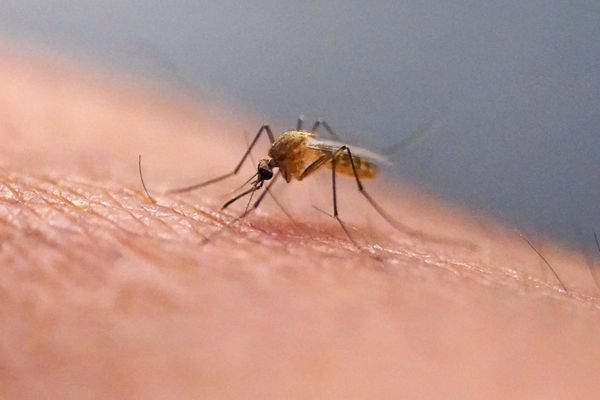If all goes smoothly, it will be another "men in black" style group photo for the Chinese Communist Party's (CCP) new leadership after its 20th National Congress this week.
In Beijing, the political struggle will be intense, and the power distribution will be mysterious, but one thing will be certain: no women will be elected to the CCP's top elite decision-making group led by General Secretary Xi Jinping.
"It seems there is an unwritten rule that no women are in the top leadership," said Dr Wang Pan, an expert on China's gender issues at the University of New South Wales.
As a left-wing revolutionary party, the CCP has progressively increased its grassroots female members.
But surprisingly, over its 100-year history, no women have been elected as core leaders.
So why does China's ruling party have so few female elites?
More grassroots members, zero top leaders
Decades ago, Chairman Mao Zedong coined the prevailing feminist term "women hold up half the sky".
Obviously, men hold up the other half and rule China.
In the CCP's power pyramid, the top leaders form a central committee with a more exclusive and powerful 25-member group called the politburo.
There is currently one woman in the politburo.
Sitting at the core of the politburo is the standing committee, a seven-member decision-making group that determines major political issues.
The standing committee has the supreme power. It has no women at all.
It cannot be denied that the CCP has a history of trying to empower women's political representation and advance women's rights.
In 1982, the party encouraged women to become members with an amendment to the constitution which said the state should actively train and select female cadres.
China also established the country's first specialised law on women's rights protection in 1992, and in 1995 held an international conference for women in Beijing.
More recently, Mr Xi vowed in his 19th National Congress report to encourage more women to become party members.
This year, 2,296 representatives are expected to participate in the party's national convention in Beijing.
Women make up 27 per cent of representatives, which is an increase of 2.8 per cent from five years ago, according to the party's official data.
Nevertheless, Chen Minglu, a lecturer at the China Studies Centre of the University of Sydney, remains critical.
While more grassroots women joined the party due to the comparatively low-entry requirements, the highly competitive selection process excluded them from pursuing high-level positions, she said.
"The top leaders in China all have to have local leadership experience. Preferably they would all have served in the central ministries of some kind," Dr Chen told the ABC.
"The state-owned enterprises' management is also a selection pool for China's political leaders. Women don't really, in general, occupy many such positions in these sectors.
"When the female population are disadvantaged, they just get slowly screened out in the selection process."
Women who do join the party are often appointed portfolios focused on health, education, sports and cultural issues, which are considered more female-oriented and less influential than finance, information technology and industry.
Female leaders for possible politburo promotion
Two high-profile women, Shen Yueyue and Shen Yiqin, are expected to have a chance at replacing Sun Chunlan — the only woman in the politburo — when she retires this year.
Shen Yueyue has a senior administrative position in the central government and worked in Mr Xi's power base of Zhejiang province.
But, it is believed that Shen Yiqin has a better position in the party.
The 62-year-old is a member of the ethnic Bai minority and the only female provincial-level party chief.
For Dr Chen, it is too early to say which one will be appointed or even if another woman will be appointed at all.
"[Having women or ethnic people] is not a tradition," she said.
"There is no statute in the CCP's constitution for reserving places for female or minority members, so there is no demand for appointing female or ethnic members."
Dr Chen said the appointment of women leaders is nothing more than window-dressing, and the party lacks a solid commitment to women's equal rights.
"The biggest barrier is the Chinese Communist Party itself being a very patriarchal, male-dominant institution," she said.
China's iron ladies in the political realm
Successful female politicians in China's patriarchal political structure often have short hair and determined faces and are referred to as "iron ladies".
It reflects the public's expectation of strong and capable leaders.
"They usually have strong masculine traits," Dr Wang said.
"Traditional cultural perception is that women lack the quality [of being politicians]. They're not natural political figures."
A handful of female leaders who served in the politburo since 1949 profoundly influenced China's society, such as Deng Yingchao, Ye Qun and Jiang Qing.
Deng Yingchao was the only female member of the CCP's ruling elite group the "Eight Immortals" who held substantial power in the last two decades of the 20th century.
Ye Qun utilised her power to influence the army through her membership in the party's central military commission working group.
While Jiang Qing, one of the notorious leaders of the "Gang of Four" during the Cultural Revolution, gained tremendous power over most of her male colleagues.
She could make critical policies in the name of the central committee of the CCP and the state council.
These women all managed to climb to the top of the political pyramid, but also shared another story: they all had husbands in the top authority.
Jiang Qing was Chairman Mao's wife, and Ye Qun's husband, Lin Biao, was hand-picked by Mao as his successor.
Deng Yingchao married Mao's right-hand man, Premier Zhou Enlai.
However, none of the powerful wives were standing committee members, which meant they were never really at the core of the CCP's formal leadership.
While the prominent female leaders had a long history of being very active in China's communist revolution, Dr Chen said their successes hinged on their backgrounds.
"I'm not saying that they became members of the politburo only because of their husbands, but I think this connection really matters," she said.
'The gendered political hierarchy remains'
It is believed that if the male-dominant trend remains, many young Chinese women will be discouraged from pursuing a career in politics and the country's gender equality development will continue to be held back.
"Under Xi's leadership, it is pretty evident that traditional gender norms are reinforced. Women have dual burdens, both family and work," Dr Wang said.
"The state has a set of certain expectations for women being modern workers, getting married and having children and cultivating their family values."
In recent years, "feminism" and "MeToo" have been censored and men have been forced to adopt an ideal of masculinity as the government cracked down on so-called "sissy men".
Traditional family values have also been enhanced with the Chinese government shifting its "One Child" policy to encourage a third child and elevate China's declining birth rate.
These prejudicial policies are accumulating more barriers for women to advance their political ambitions.
"When women have limited voice in the top-level decision-making process, the gendered political hierarchy remains, and the existing glass ceiling remains," Dr Wang warned.
"It can hardly change in the short run and takes time in the long run to see some changes."
Additional reporting by Zoe Chen







